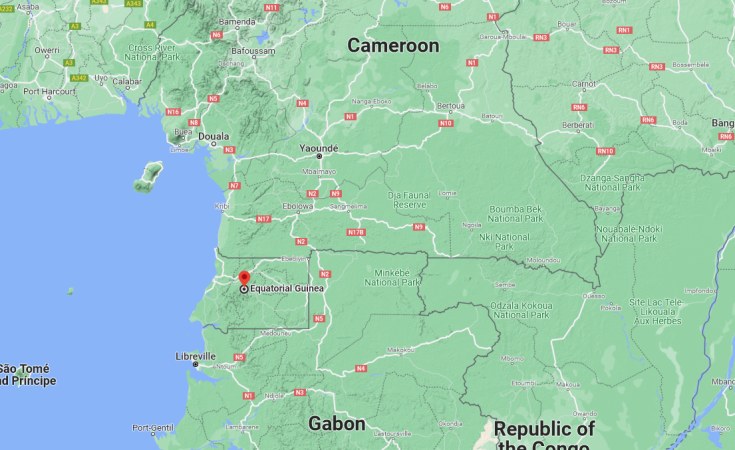Yaounde — Traders working on Cameroon's border with Equatorial Guinea say Malabo has partially reopened border traffic a day after partial election results indicate Teodoro Obiang Nguema will extend his 43-year rule. The 80-year-old Nguema, the world's longest-ruling head of state, came to power in a 1979 coup and has since ruled the west African nation with an iron fist.
Merchants from Cameroon, Chad and Nigeria say they were permitted to enter Equatorial Guinea Wednesday.
Equatorial Guinea closed its borders October 30 ahead of its November 20 elections and said it wanted to prevent what it called "infiltration of mercenaries who want to destabilize the elections."
Cameroon-born building material exporter Pierre Marie Mihamle says several hundred traders entered Equatorial Guinea a day after the central African state's government announced November 20 elections results.
He says the re-election of Obiang as president of Equatorial Guinea means the movement of goods and persons to the central African state will be frequently interrupted or meticulously controlled. Mihamle says foreign nationals who speak against Obiang will be chased from Equatorial Guinea.
Mihamle said Cameroon, Chad, Central African Republic, Equatorial Guinea, Gabon and Congo Brazzaville are members of the Central African Economic and Monetary Community, or CEMAC, but Obiang regularly orders the deportation of foreign citizens, citing national economic and security concerns.
Obiang's ruling Democratic Party of Equatorial Guinea, or the PDGE, is winning over 98% of the vote in presidential, legislative, and municipal elections held Sunday, according to preliminary election results released this week by Equatorial Guinea's interior minister, Clemente Engonga Nguema Onguene. The results indicate that Obiang's challengers, Andrés Esono Ondo of the CPDS party and former ally Buenaventura Monsuy Asumu of the PCSD, got 1.34% and 0.35% of the vote.
The final results of the one-round election will be announced November 26, according to Equatorial Guinea's electoral laws. The 80-year-old Obiang is Africa's longest serving leader. He took power from his uncle, Francisco Macías Nguema, in an August 1979 coup.
Ngah Derrick is an international relations specialist at Cameroon's National Institute of International Relations. He says Equatorial Guinea should not expect any changes from Obiang, who has ruled the country with an iron fist.
"Obiang has done everything to eternalize power," said Derrick. "The reigning vice president of the country that is his son is the vice president of the Republic and it tells you that he is gradually grooming his son in order to be able to ascend to the highest office of magistracy of the state in Equatorial Guinea in case he [Obiang] becomes tired, sick or in case of death."
Obiang's son, Teodoro Nguema Obiang Mangue, is Equatorial Guinea's vice president. Equatorial Guinea's political opposition says Obiang's rule is marked by favoritism, persecution and torture of political opponents. Santiago Oliveira, who led Obiang's election campaign in Cameroon, denies the charges. He says the long-serving central African state's leader should be credited with bringing development to his country.
He says Obiang has transformed Equatorial Guinea from a very poor and heavily indebted country it was in 1980, to an emerging economy today.
Oliveira said Equatorial Guinea civilians who voted in Cameroon should wait for Malabo to declare election results. He said all civilians should rally behind Obiang as he continues managing affairs of the state in the country's general interest.
The United Nations says Equatorial Guinea has an annual oil revenue of more than $3 billion, but most of its 1.5 million people live in abject poverty. The nation's opposition parties say most of the wealth is in the hands of Obiang, his family and friends.


